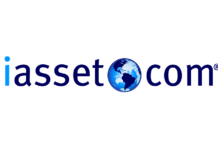Seagate
Technology (Nasdaq: STX) today announced selected preliminary financial
results for its third fiscal quarter which ended on April 3, 2009 and an
initial business outlook for its fourth fiscal quarter ending July 3, 2009.
<<
Preliminary Fiscal Third Quarter 2009 Results
>>
Seagate expects to report unit shipments of approximately 39 million and
revenue of approximately $2.1 billion, exceeding the company’s original
outlook of $1.6 – 2.0 billion. The company believes the total available market
(TAM) for hard disk drives was in the range of 110-112 million units for the
March quarter. Unit demand for Seagate’s 2.5-inch and 3.5-inch ATA products
was better than planned and the company gained significant share in each of
these markets. The company’s leadership position in the enterprise market
remained substantially unchanged from the prior quarter; however, the TAM for
enterprise class products decreased by an estimated 20%, sequentially. In
addition, the company shipped a higher mix of lower capacity desktop and
notebook products than planned. Cash, cash equivalents and short-term
investments increased by $200 million to approximately $1.5 billion.
<>
Gross margin as a percent of revenue (“gross margins”) is expected to be
approximately 7 – 7.5%, which is better than the company anticipated due to
higher volumes and effective spending controls. Compared to the prior quarter,
gross margins decreased by approximately 700 basis points due to like-for-like
product price declines, an estimated 20% reduction in the TAM for enterprise
class products, and lower factory utilization and fixed cost absorption as the
company continues to aggressively manage inventory and align production with
demand.
<>
Product development and marketing/administrative costs are expected to be
approximately $380 million, including approximately $10 million of accelerated
depreciation, which is favorable compared to the original outlook of $395
million.
<>
“I’m encouraged by our progress during the quarter in identifying and
addressing a number of key strategic issues that are critical to the success
of our business model,” said Steve Luczo, Seagate chairman and chief executive
officer. “Specifically, we are realigning our business processes and
optimizing our product portfolio to maximize profitability. These actions
allow us to more effectively fund our technology development, drive product
leadership and create value for our customers by delivering the industry’s
best products. We expect to see the effects of these actions in our product
transitions, resulting in an ongoing improved margin profile. We’re encouraged
with the ramp of our new 250GB and 500GB 2.5-inch products and 500GB and 1TB
3.5-inch products as they transitioned to volume this quarter. Additionally,
we are addressing the near- to mid-term liquidity requirements through the
recently announced amendment to our credit agreement and the announcement
today of our anticipated financing.”
<<
Initial Fiscal Fourth Quarter 2009 Outlook
>>
Current uncertainty in global economic conditions makes it particularly
difficult to predict product demand and other related matters and makes it
more likely that Seagate’s actual results could differ materially from current
expectations.
<>
For the June quarter, the company expects the TAM, on a unit basis, to be
flat as compared to the March quarter in contrast to the historical norms of a
slight decrease, with pricing consistent with historical June quarters. The
company sees no significant increase in the TAM for the enterprise market and
expects to maintain its leading share position in this market in the June
quarter. Accordingly, the company expects revenue to be in the range of $1.9 –
2.2 billion and gross margins to improve by 300 – 400 basis points as products
based on the 2.5-inch 250GB/disk and 3.5-inch 500GB/disk product platforms
continue to ramp and replace less cost-efficient product platforms. The
company believes the ongoing transition to these new product platforms,
coupled with targeted cost structure reductions, provides the foundation for
the continued improvement of gross margins into its fiscal year 2010. Product
development and marketing/ administrative costs are expected to be
approximately $340 million for the June quarter, with the targeted run rate
being less than $300 million per quarter which is expected to be achieved
during fiscal year 2010.
<>
As part of the company’s ongoing cost structure alignment, additional
restructuring actions are currently being addressed. The company believes
opportunities exist to reduce operating costs in product development,
marketing/administrative and manufacturing areas to target a cost structure
that generates positive cash flow and earnings within its fiscal year 2010.
The estimated cost of any additional restructuring activities has yet to be
determined.
<>
The fiscal fourth quarter 2009 outlook does not include the impact of any
future mergers, acquisitions, dispositions or other business combinations,
financing or potential new restructuring activities the company may undertake.
The company is continuing to evaluate various financing options to manage the
retirement and replacement of existing debt and associated obligations,
including the issuance of new straight debt securities, exchanging existing
debt securities for new equity or other debt securities and retiring existing
debt securities pursuant to privately negotiated transactions, open market
purchases or otherwise.
<<
Liquidity
>>
Cash, cash equivalents and short-term investments as of April 3, 2009
totaled approximately $1.5 billion compared to $1.3 billion in the prior
quarter. Approximately $90 million of cash restructuring payments were made
during the March quarter.
<>
To further enhance liquidity, management has recommended and the board
has adopted a policy of not paying a quarterly dividend. This action is
expected to reduce cash outflows by approximately $60 million annually.
<>
As disclosed on April 6, 2009, the company has amended the terms and
financial covenants relating to the existing revolving credit facility. The
company believes the new financial covenants provide adequate flexibility for
the remaining term of the credit facility.












